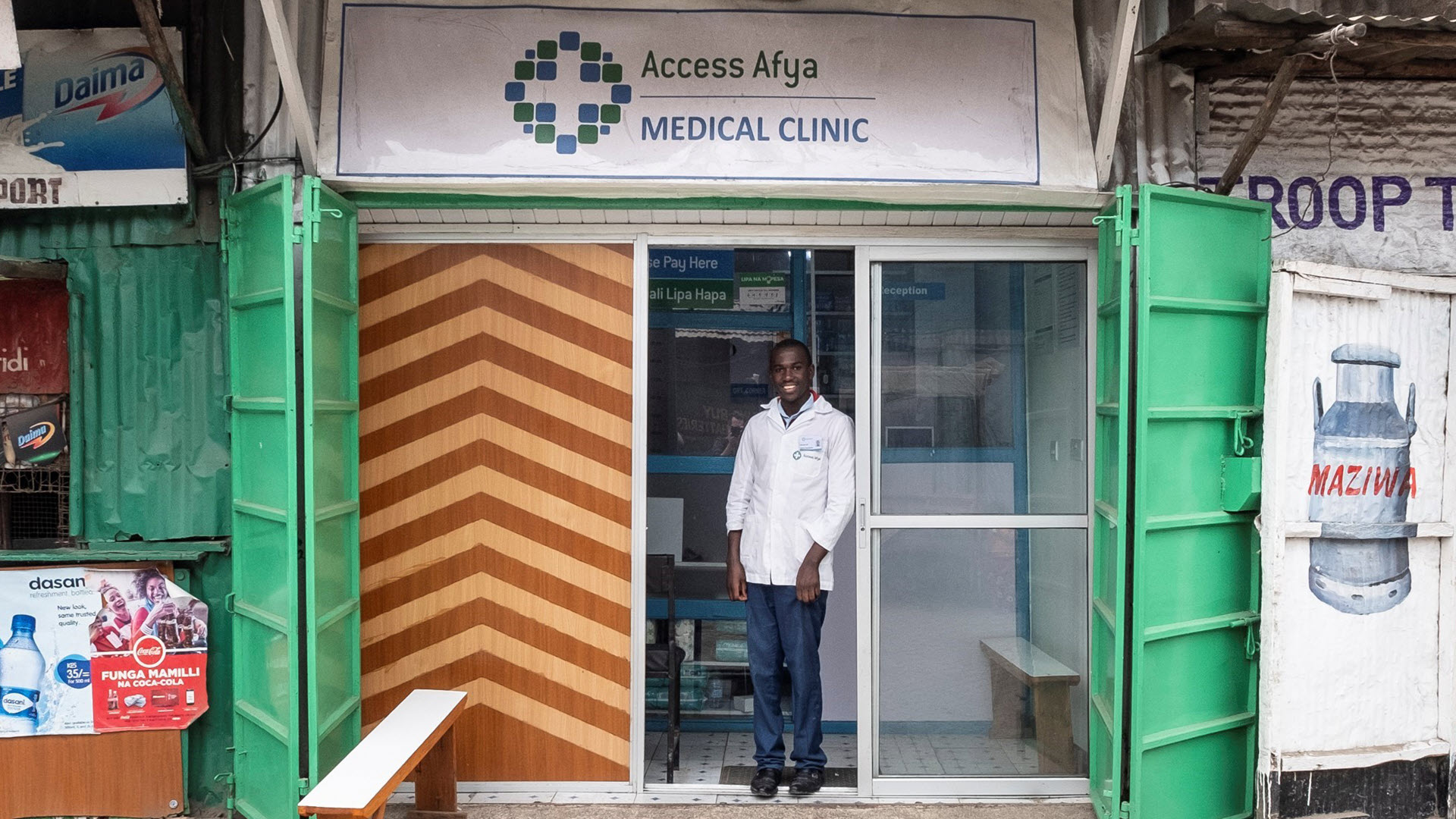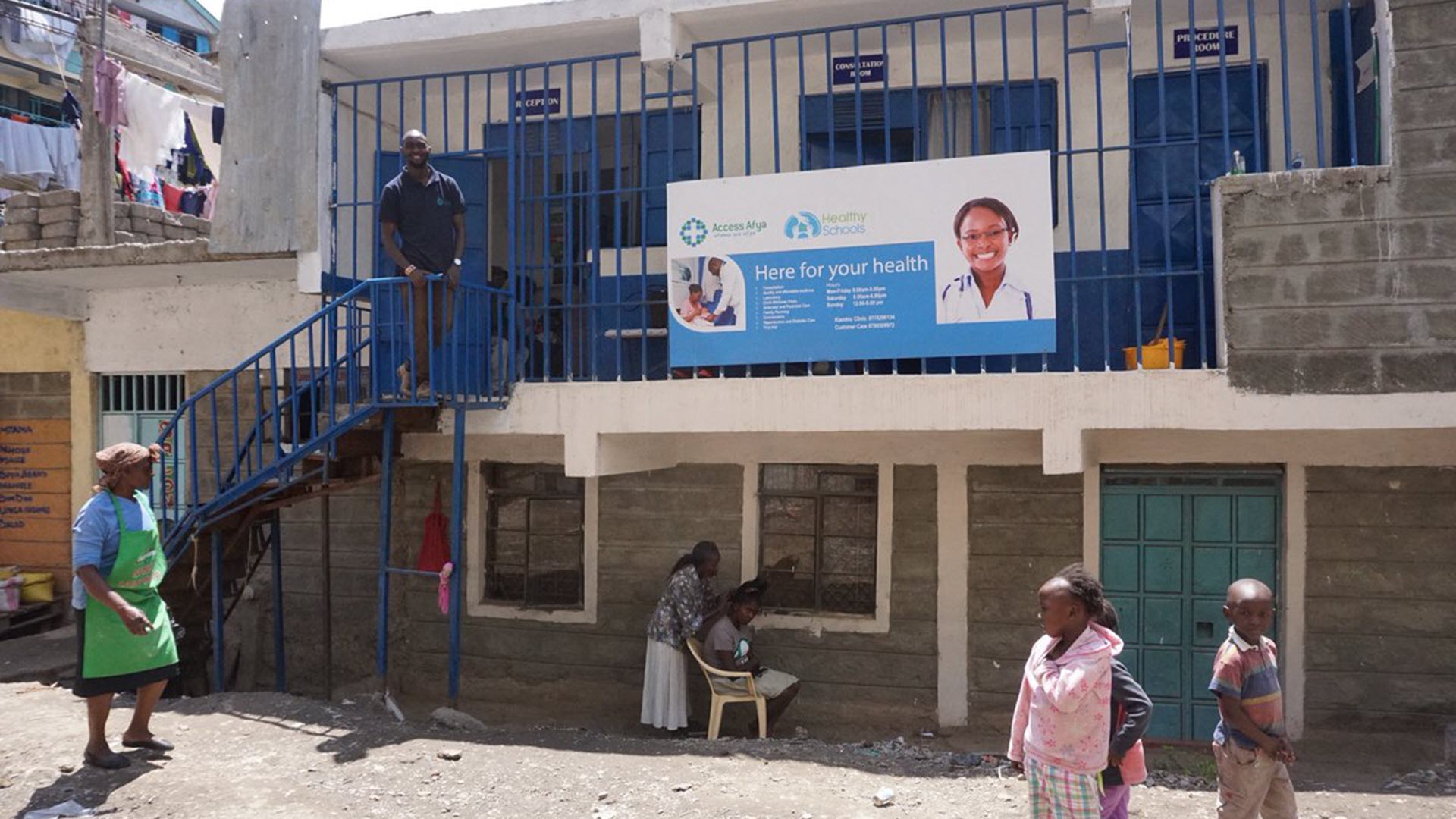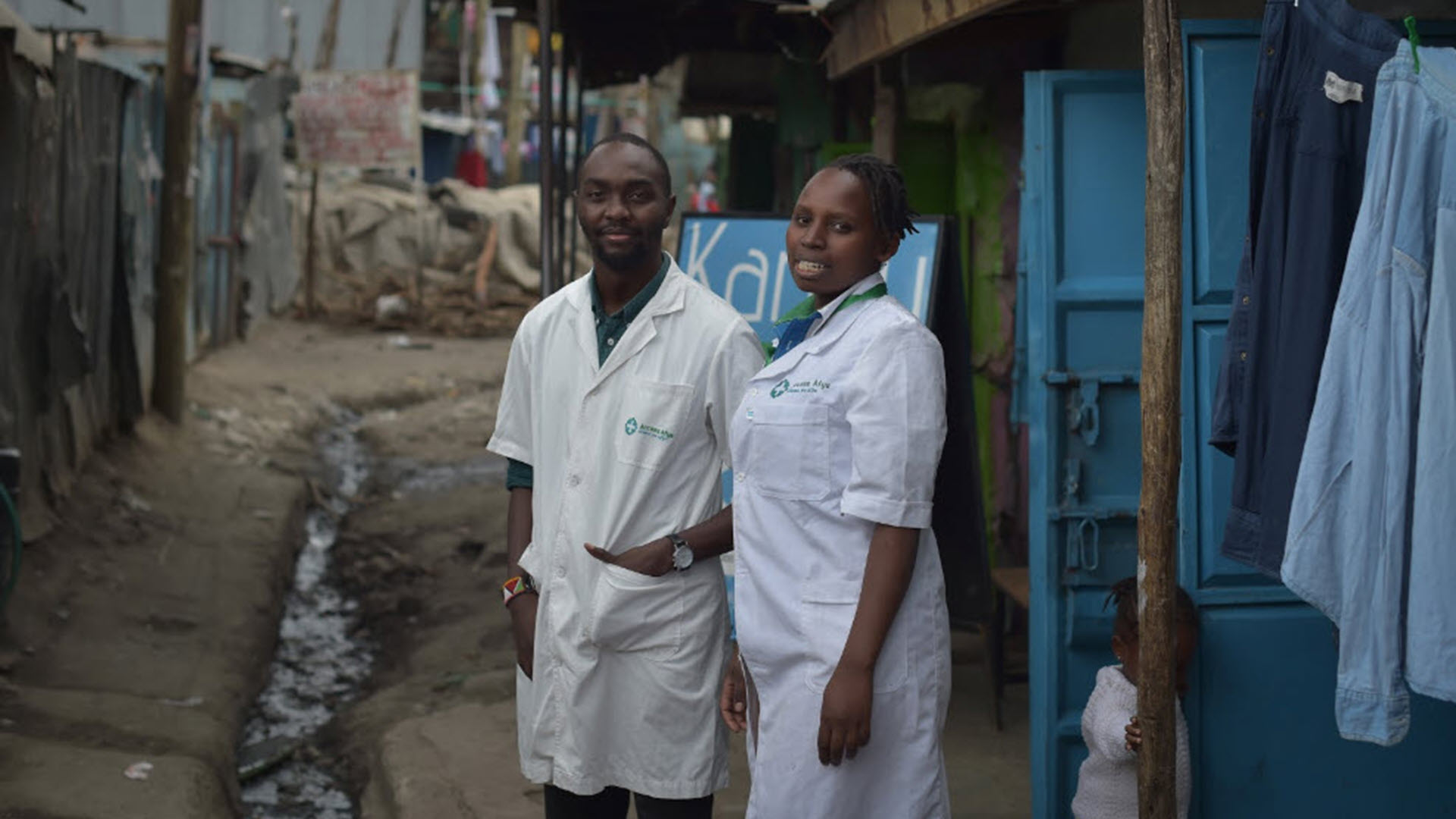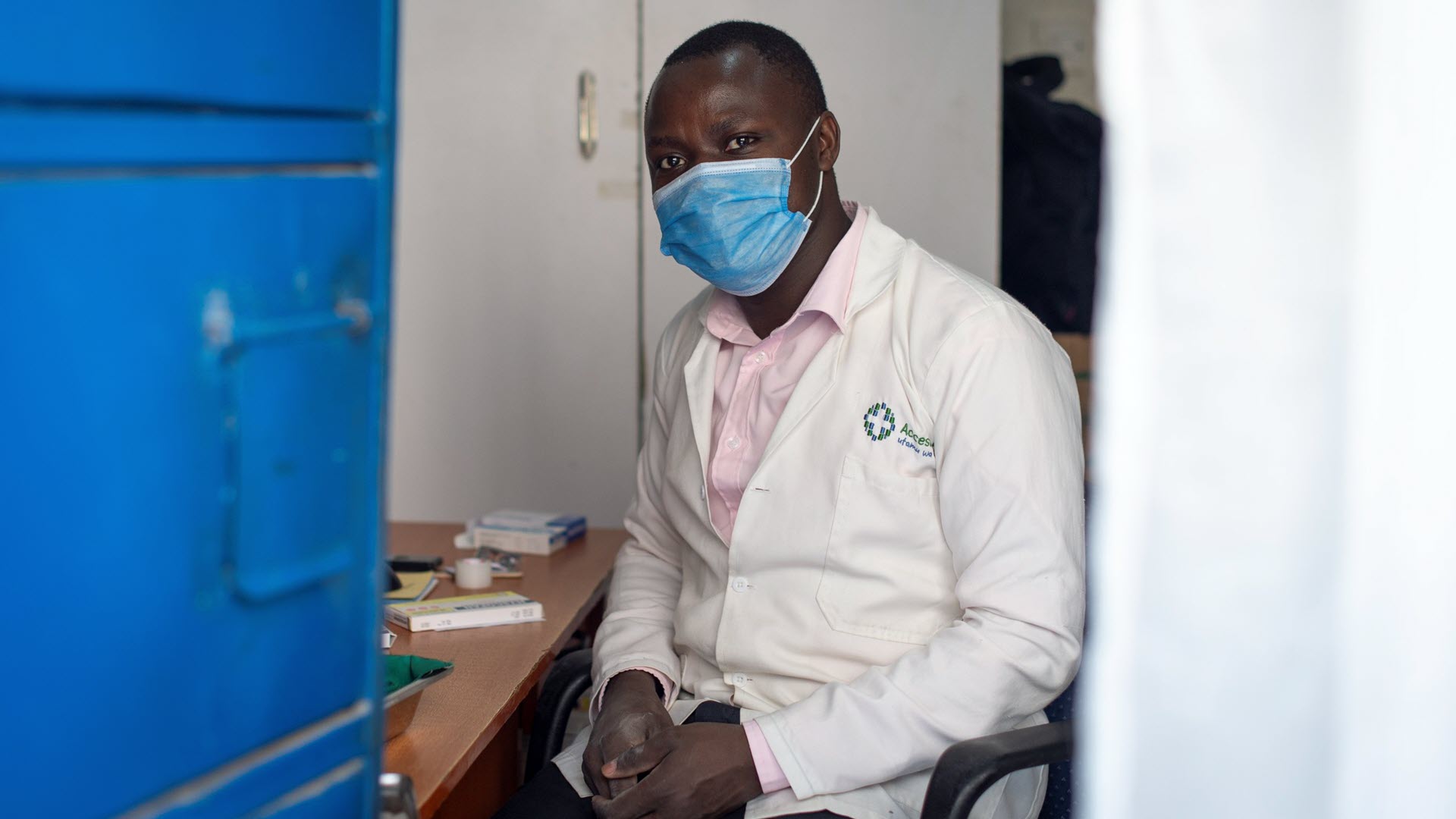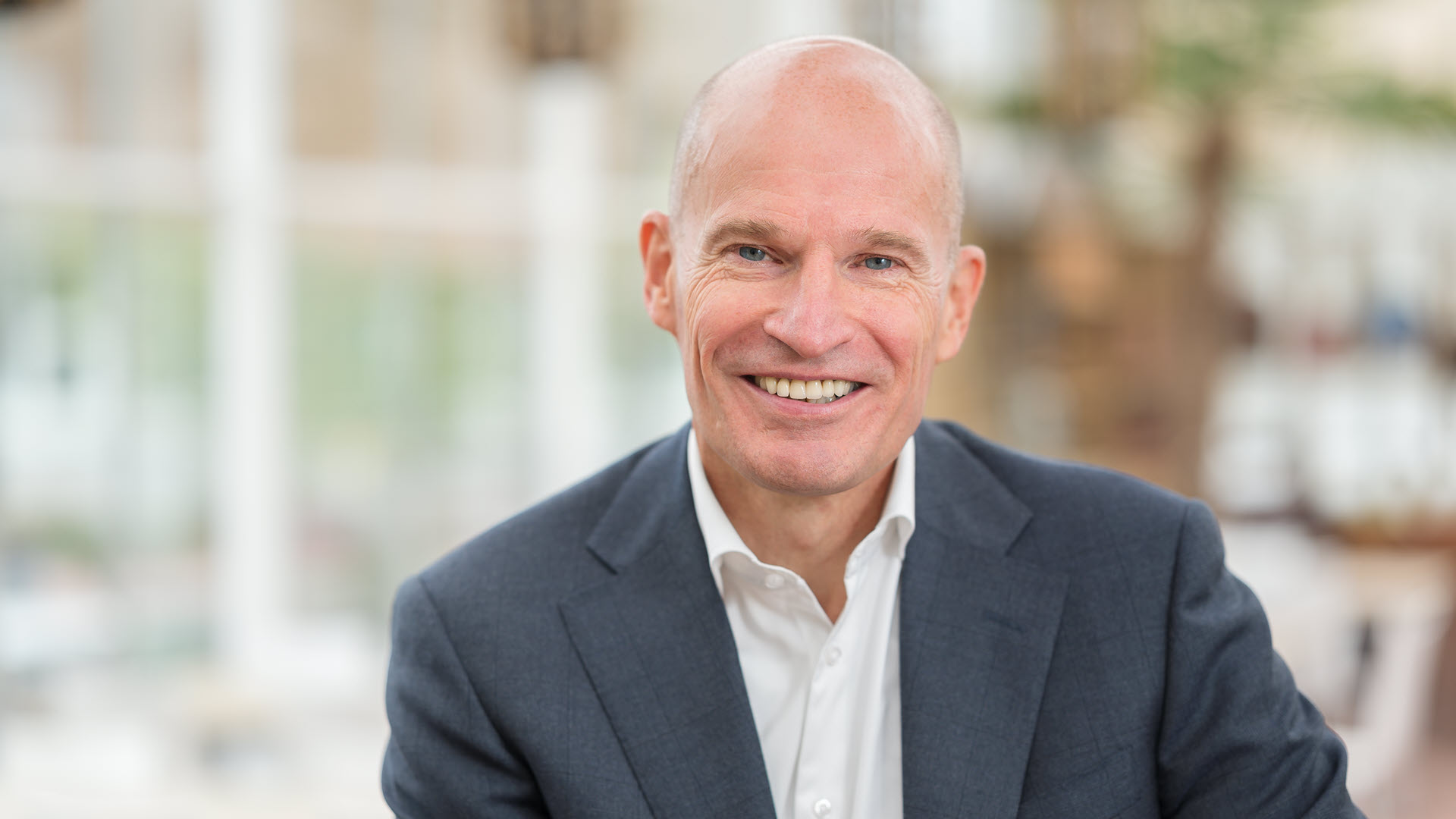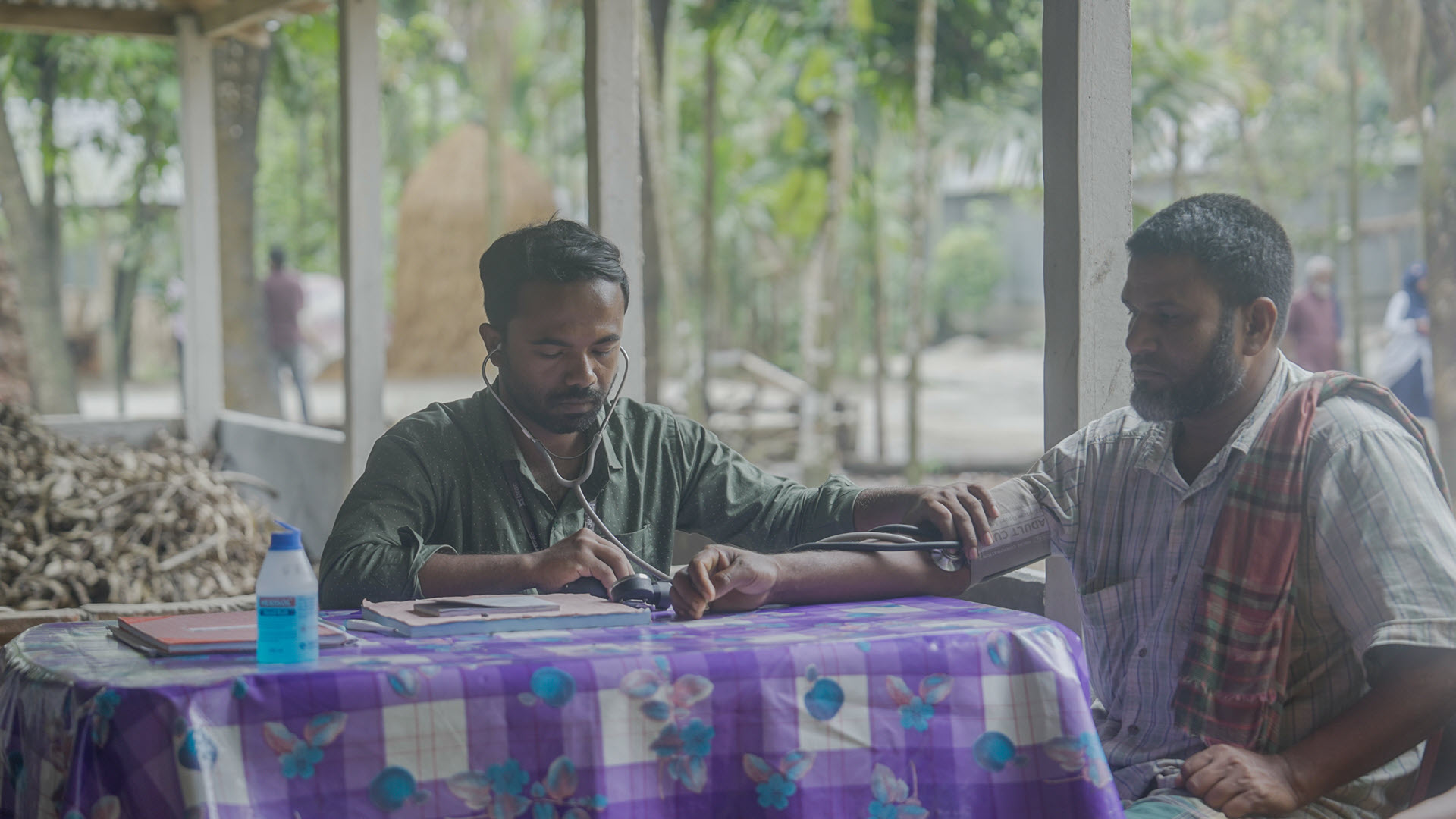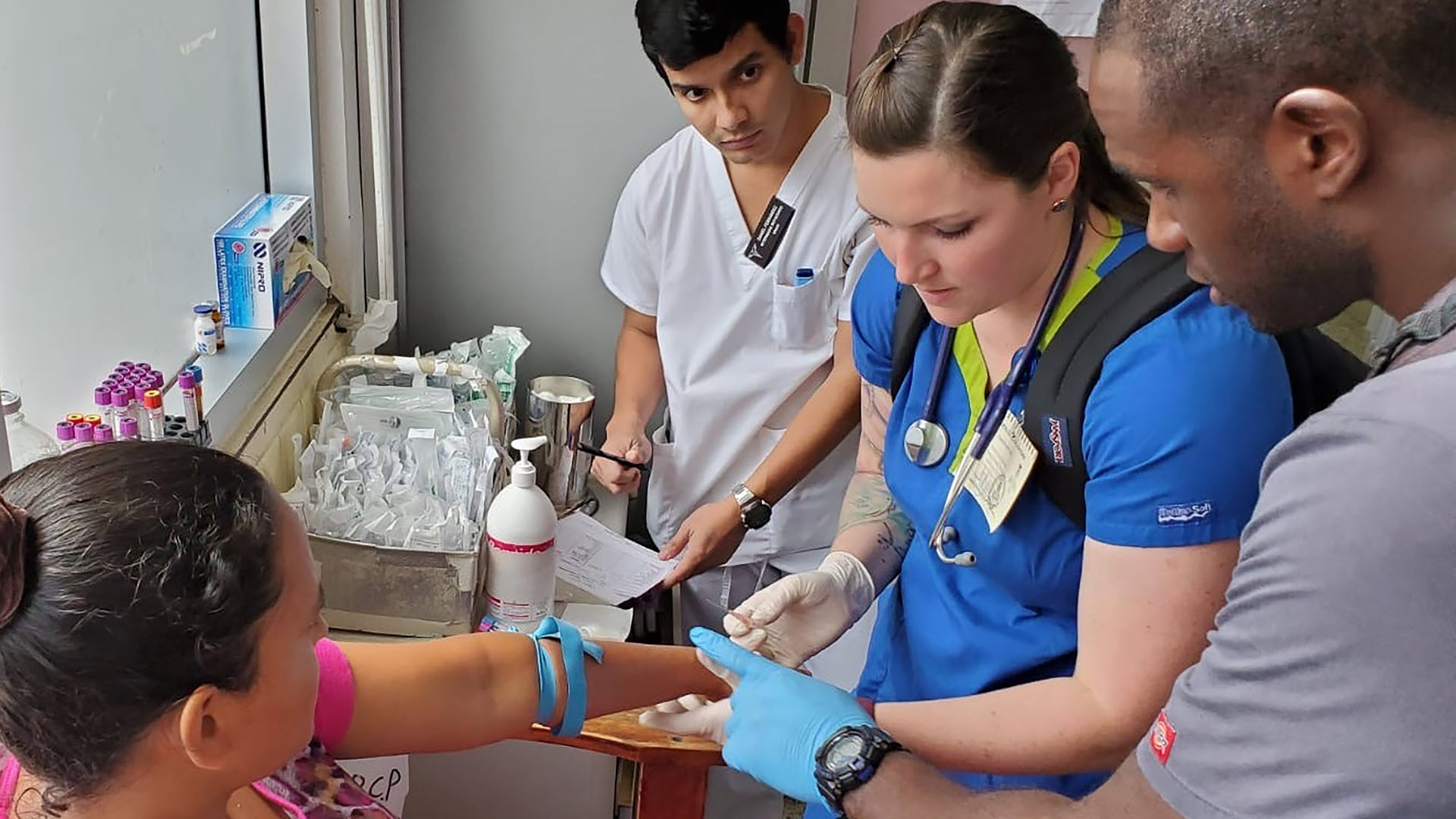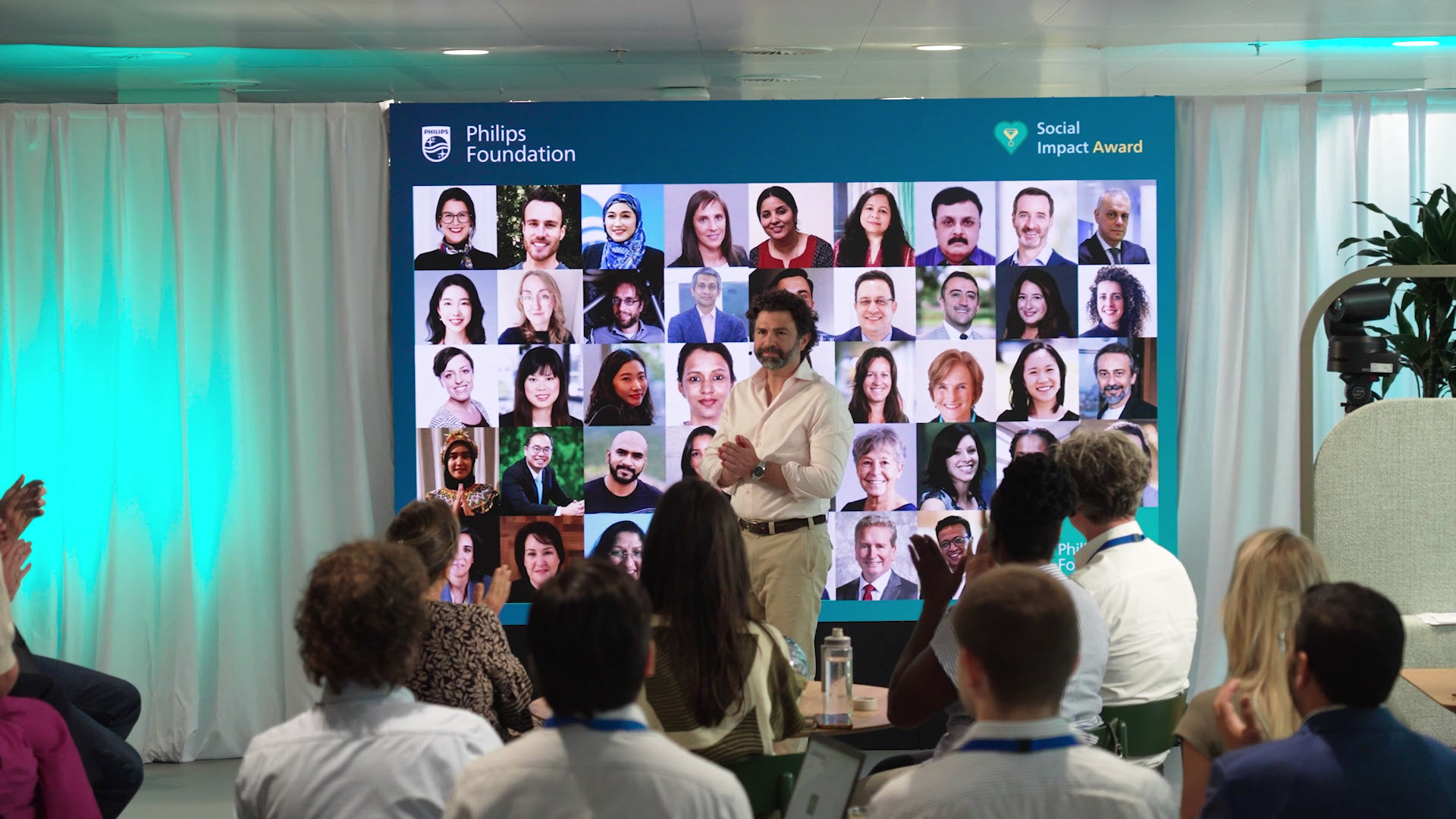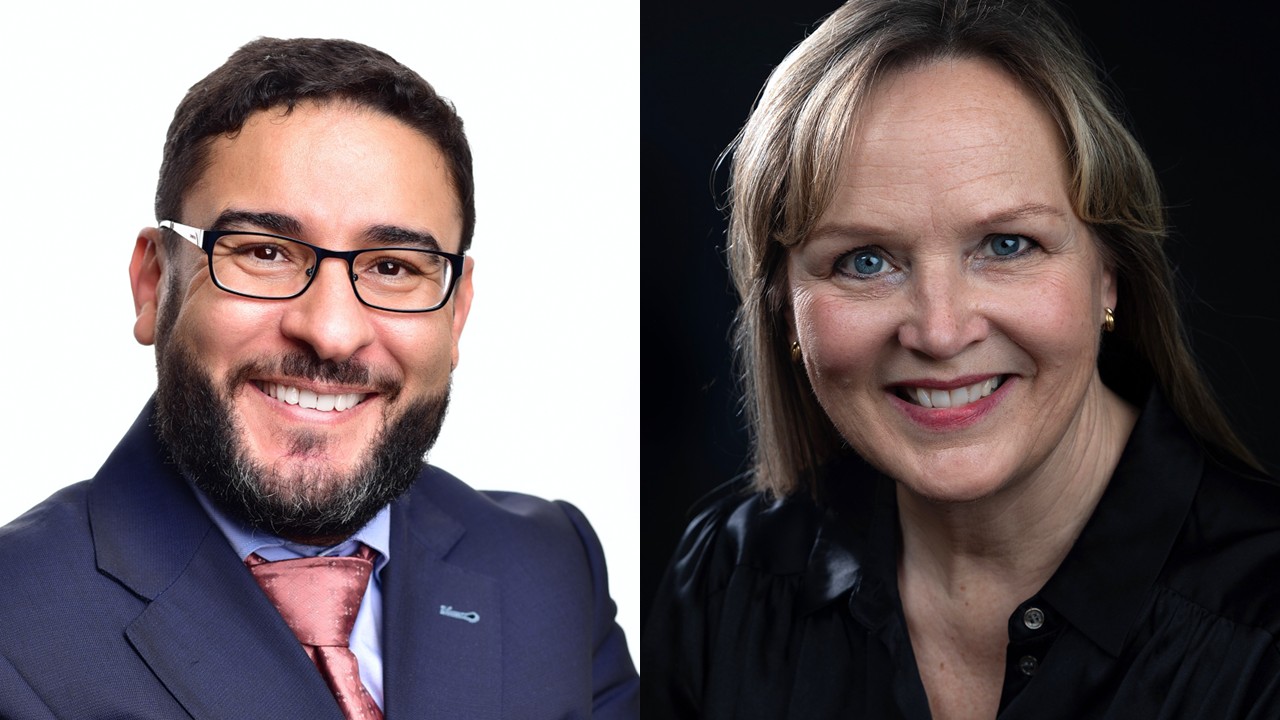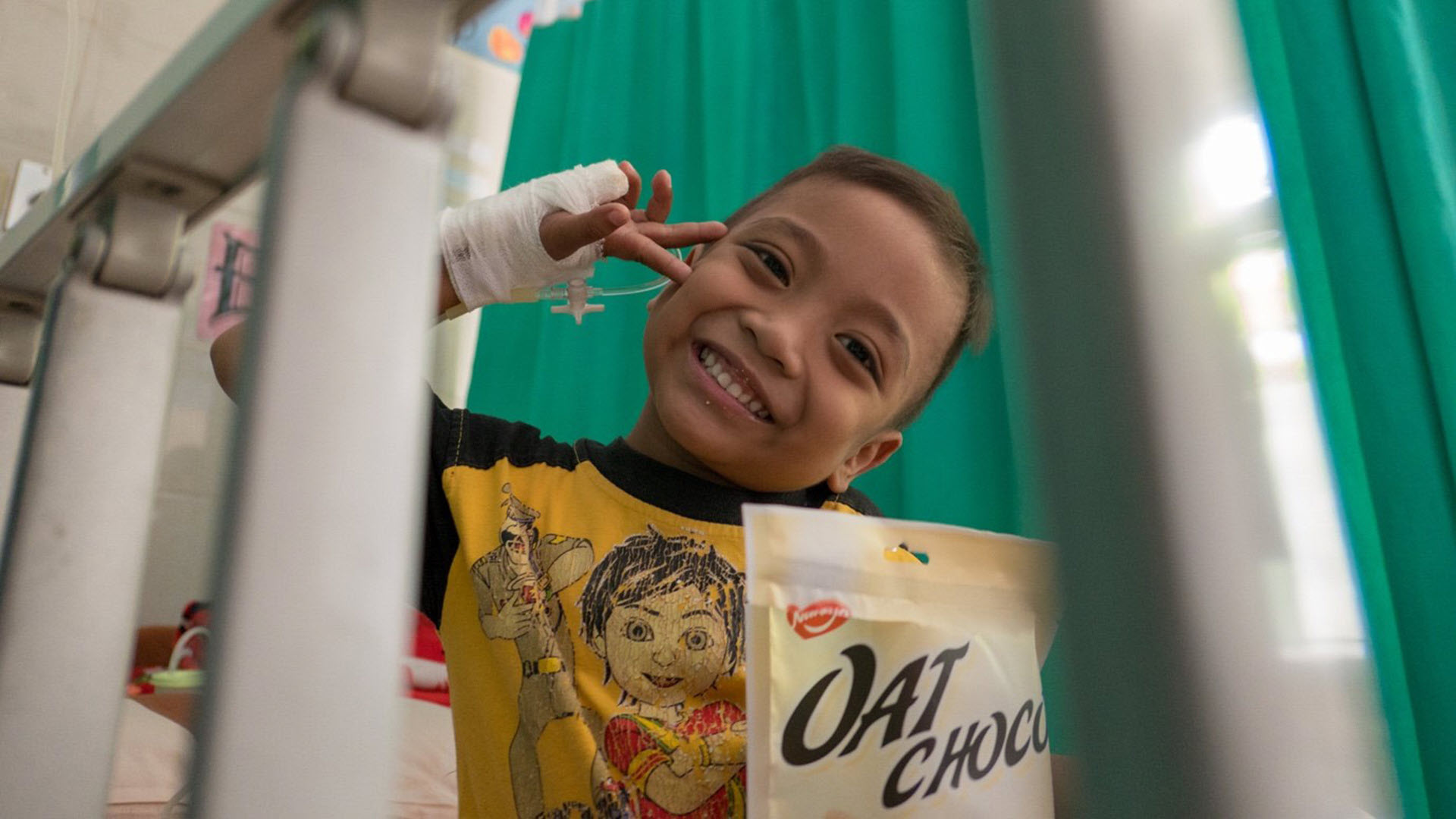Firstly, they introduce walk-in clinics that offer dependable healthcare at affordable prices. These clinics are essentially ready-made, or as Access Afya phrases it, a ‘clinic in a box.’ They provide a broad spectrum of services tailored to local needs, including family planning, lab tests, children's vaccinations, prenatal and postnatal care, routine check-ups, emergency care, and much more.
In addition to these physical clinics, they offer a digital solution too. Through an app, they offer virtual doctor consultations for an affordable subscription fee.
Access Afya's mDaktari app is a game-changer in this space. Their mobile platform transforms conventional healthcare delivery by offering real-time consultations. This allows doctors to share health advice, prescribe medication if necessary, and even facilitate health coaching sessions – all without patients having to leave their homes.
As Melissa Menke puts it: “At Access Afya, healthcare doesn’t start and end at the clinic.”
Patients can ask health-related questions via the digital app mDaktari, screen themselves for common health conditions, and connect to their nearest Curafa clinic to either pick up their medications or consult a doctor in person. They also receive follow-up checks on their well-being.
For individuals earning up to $135 a month, the average in Kenya [3], this comprehensive suite of affordable services reshapes healthcare access, establishing a gold standard for tailoring healthcare models to communities facing economic challenges.
Healthcare worker-centric
At the crux of Access Afya’s innovative approach also lies the empowerment of local healthcare workers.
“Our model is an example of a healthcare worker-centric approach. It enables passionate local health professionals, who possess an intimate understanding of their communities, to set up their clinics,” Dr. Daphne Ngunjiri, CEO of Access Afya, explains. “This not only democratizes healthcare access, extending its reach to even the most remote areas but also nurtures a sense of ownership and responsibility among local practitioners.”


